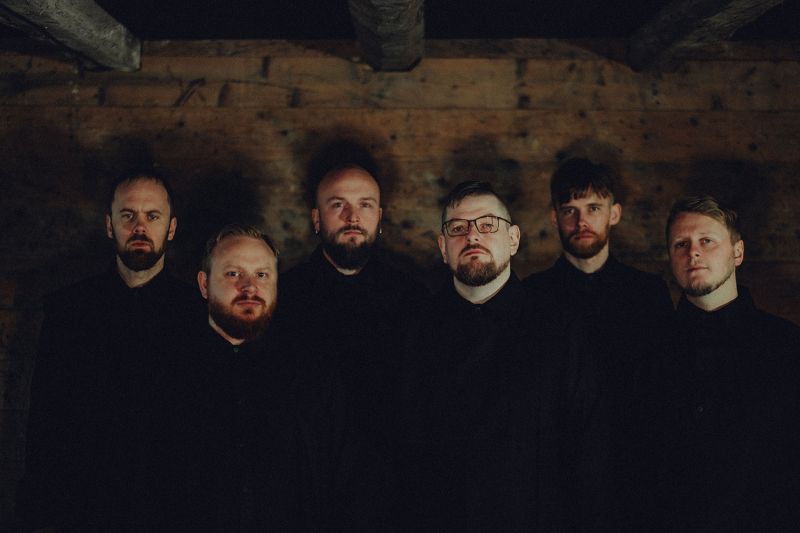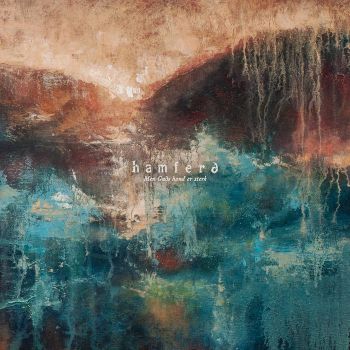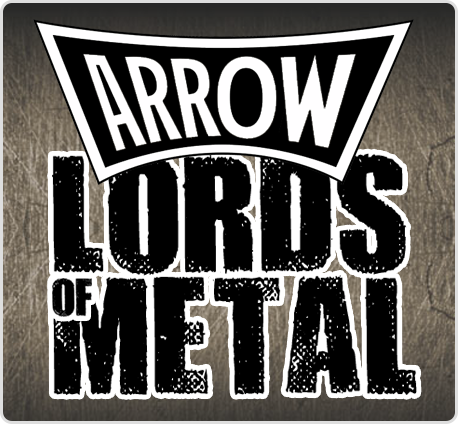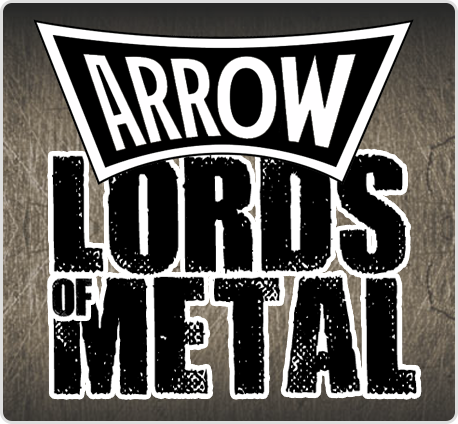
Hamferð interview met Remi Kofoed Johannesen
Remi Kofoed Johannesen: “We try to achieve a sound that reflects our live performances, which are always fantastic. So we wanted to recreate that as well as we could by writing and recording the album in a sort of old school way, playing all together in one room.”
Buiten Týr geniet ook Hamferð uit de winderige Faeröer Eilanden een groeiende internationale bekendheid. In 2008 werd de band opgericht en sindsdien bracht men twee albums en twee EP’s uit met prachtige, melodieuze doom/death metal waarin progressieve en tal van andere metal elementen opduiken. Hamferð’s stijl mag gerust uniek genoemd worden. Zes jaar na ‘Tamsins Likam’ brengt de zeskoppige band nu weer een aangrijpende kanjer uit: ‘Men Guðs Hond Er Sterk’ wat zoveel betekent als ‘Maar de hand van God is sterk’. Het is een conceptalbum over een tragische gebeurtenis die plaatsvond in 1915 in het dorpje Sandvik, waar 14 mannen stierven toen ze tijdens de jacht op grinden de dieren in het nauw wilden drijven om te vangen. We praatten erover met drummer Remi Kofoed Johannesen die ons ook nog enkele wetenswaardigheden over hoofdstad Tórshavn wist te vertellen.
Vera Matthijssens Ι 2 april 2024
Remi, in January 2018 Hamferð released the former album ‘Tamsins Likam’ and in 2019 it was followed by the EP ‘Ódn’. Were you satisfied with how people received those works?
Yes, I believe so. The previous albums were having a continuous storyline within a musical setting. We achieved our goals very well and we were very happy with how people seemed to receive it. Beyond surprise I would say, because it is not the kind of music that you would expect. It has a kind of progressive approach of doom music, it is kind of different. It is like a niche within a niche. So we were very happy that – in despite of those categories so to speak – it seemed to have a proper appeal. We are very thankful for that.
After that story, it was time to find a new subject on the new album ‘Men Guðs Hond Er Sterk’ and you have chosen a local event from 1915 in Sandvik. How did you come to that story?
As far as I know, it is a real story that happened in a village called Sandvik – as you say – which is the home village of our keyboard player Esmar Joensen. I think he mentioned it to us earlier, that it might be relevant to our type of music. I think we all agreed immediately. Of course we needed to complete what we had started on our earlier records, but once we were finished with those, I think we were immediately thinking about what the next theme or topic would be. Of course that kind of event is rich for taking emotion out of this terrific tragedy and it is a very human event so to speak, at least in the Faroe terms. It was normal to anticipate in the whaling events. It happened in this tiny village. Pure horror, while friends and family could only watch from the shore, it puts the context in a human emotional setting. You can imagine the horrors of being at the ocean, in the ocean and the people watching it from the shore. Of course the aftermath and the days and years after and the people who came from the neighbouring villages to help out, they had to go back home and tell everyone what happened. So there were a lot of surrounding emotional themes to dig in, so to speak.
But the concept fits very well with your approach from telling old tales about dead and missing seamen…
Well, it goes hand in hand with the overarching theme. Hamferð – as you might know – is a Faroese term for these specific type of fairies, omen or premonition where it is said that the past remains. If you have a dear one who was at sea and you see their corpus in the door or at the shore or something, that is an omen that they will die. So that goes very well hand in hand with this specific event, also because many people said that, during and after the whale attack event, they saw people. So it is very closely linked.
And really something from your home country, because it is a true tradition, the whale hunts. There is a lot of international protest against it as well…
Yeah yeah it is a controversial activity at some parts of the world, but mostly in the Faroe Islands, it is something that has been done always. There are different opinions about it of course. All countries are in a constant state of development, we will see how it turns out in the future for us.
In the meantime we have noticed that there are two new members in the band since the former album. In February 2020 your co-founder guitarist John Egholm was gone. Why did he leave and how did you find the new force?
There were no personal problems. I mean, we have our lives and he has his life and in the end the economic situations and regarding the band – all this kind of stuff – it made it impossible for him to continue. It was up to us to find a way to make it work again. We were very sad when he had to leave, but we are still on very good terms. We are still good friends. He has another band now which is called Hamradun, also releasing records. Actually they just released a new record two weeks before us. We are still walking in the same lane. We knew Eyðun beforehand. Tórshavn is a small town, the metal scene is a small community. Everybody knows everyone. We knew him from many years in the scene and around other bands and stuff and before John left officially, he was unable to join us for some live shows and for those shows we asked Eyðun if he could step in as a temporarily substitution, which he was happy to do. When the decision was made that John was unable to continue, it was a natural choice to ask Eyðun if he could join, which he was happy to do and he has been given great input into the new tracks we have written. He has given a fresh input. It is a different input from a different person, so that has given some freshness to our way of writing.
I think the new bass player Jenus has been in the band before, isn’t it?
That’s right. He was our second bassist and now also our fourth bassist. No hard feelings though for our former bassist Isak Petersen. Again, it is how life just turned out, how you can cope with economic situations, friends and family and all those kinds of stuff. No drama or anything, just the reality.
And it was during the covid-19 pandemic, not an easy time…
Indeed, some people were harder affected economically and of course emotionally by corona than others. Personally my work did not affect me, but some people who depend on going out in public for their work, and also with the music, if you were depending on playing gigs, of course you had no income for three years or so. Of course it was hard for many people in the field.
The funny thing is that the first show you played after the pandemic happened to take place in the Netherlands, at the Brainstorm festival…
We always enjoy going… anywhere, basically. We play mostly Europe, but we are working on expanding the scope a bit in the future. Of course it is still in the works, but we are working on it. Of course we also come to Europe.
This album is created all together with the input from everybody in a room, quasi live and it is also recorded in a special way without click-track. Was it for you a nice experience, working like this?
Yeah it is something we spoke about for ‘Tamsins Likam’, the previous record, but it did not really fit. We didn’t feel like we could deliver it the way we wanted to. Of course it is a bit nerve wrecking. When you record with a click-track, it is a bit easier to make clean-ups so to speak. Any small mistakes that happen can be hidden or removed. That is the normal way of doing it today and there is nothing wrong with that. This was a bit more the old school way, which makes everything exposed, saturations and tempos, they are left exposed. So it is not perfect. People may think that it is less tight, but that is not necessary how we want it to be. It just has to be imperfect in a musical way. And that can be very, very good but it can also be hard to achieve. We try to achieve a sound that reflects our live performances, which are always fantastic. So we wanted to recreate that as well as we could, so that was why we wrote the songs that way and recorded the songs that way. That was a conscious effort from the beginning of the process, basically from when we started writing songs. I am happy with how it turned out. We are all very keen on the rest of the songs to be released. We have a new single tomorrow actually.

Yeah I saw it. It is ‘Hvølja’ and it should be a favourite of the other guitarist Theodor Kapnas. It is rather heavy and sludgy…
Yes that is correct. When we wrote it, we specifically decided to make it as ‘avoiding the light’ as possible. Like no hope, no resolution, no salvation, just sadness. That was the kind of song we wanted to write. So what did we do? We wrote the verse without chords, it is just rhythm where they are hitting the guitars to a rhythm that I created and then just using a pedal, a specific pedal. It sounds really, really brutal and it is a big departure, I feel, from previous songs, because most of the songs have had some melodic element – and we still use melodic elements on the other tracks on this release – but this one is just none of that (laughs). We like that contrast in our music and in other bands music as well. We wanted the tracks of this release to be able to stand on their own, but of course we still wanted the track list to work as a whole and in that context I personally think the best moment on the album is going from the second last song – which is our next single – to the very last track, which is an interview from one of the survivors of the incident with the guitar in the background. It is just a quiet, very sober, humbling experience in my opinion.
And the funny thing is that your keyboard player lives in Sandvik and that he asked permission to the daughter of that man…
Yes. She is ninety something, so she is also very old but they were very kind and gracious allowing us to use this. The interview – if I remember it correct – is like an hour or so and obviously we could not use all of that. So we had to cut, just a few snippets out of it where we tried to maintain the essence of the interview. We did not want to portray it in a way that he did not tell us. We did not want to make it darker or happier or anything other than that he actually tried to convey. It was hard to pick out the correct lines to make it work. Theodor and Jón were the ones who did it and I think they did it very well.
Interesting news to spread is that the album in some editions includes an English version, written on the album cover…
Yes, the lyrics will be released in the original Faroese language and English translations. It is something we wanted to do previously as well, but Jón’s lyrics are quite hard to translate. I speak for myself of course, but even I don’t understand half of them. I just mentioned, I am half Danish, I am not as good in Faroese as someone who has lived there his or her entire life. Of course I speak it fluently, that is not the issue, but his lyrics are interwoven with old Norse words and stuff like that. They don’t have a direct English translation, so that the meaning gets lost very quickly and that is not the intention of course. There can be several meanings in a word and things like that, which gets lost in translation. That is why we did not succeed in it before, but this time we managed to get some translations that we feel okay with. They are close to the intent of the Faroese lyrics.
Is Faroese language very close to Icelandic language?
You can compare it with Dutch and German or Danish and Swedish. In neighbouring languages you often find similarities, but if you just go out speaking you might get lost a bit. Some people will be better in it than others. I think Icelandic is easier to read it, than to speak it. We use to say that after we have had some alcohol, we always find it easier to understand each other (laughs). I don’t know how true that is, but that is how we feel it at the moment.
I have just seen the video for ‘Ábær’. Nature is super beautiful, but the poor man…
Yeah yeah, it is a video we have made with an Icelandic video maker. He is very kind. We tried to convey the general events of the album so to speak. You see the guy in the sea and we tried to film in the beginning he was actually in the sea, in the water. He struggles to come out of the water while this dark figure finds him, grabs him and absorbs him and then he is lying dead on the ground and he is out of the sea again. It was an attempt to convey a sort of getting the same theme as the album has.
Most of you are living in the capital of the Faroe Islands called Tórshavn. Is it true that bus traffic is for free?
It is, yes. That is one of the nice things. They decided it already 15 or 20 years ago. They say it is already paid with taxes and that makes sense to me, that you can get public traffic through taxes.
What are other characteristics of the town you are living in?
Actually, I haven’t lived there for twelve years or so. I moved to Denmark, in 2012 I think it was. I am half Danish, I have my family here. But I did live there back then, for 15 years. It is a wonderful town. It is a wonderful country. I regularly go to the Faroe Islands, so that I don’t miss it for too long. I really love it, everywhere you look, you can see the ocean and the mountains. That feeling, that kind of being near the ocean has this kind of openness to me. It does something to the head. I lived in Copenhagen for a while. It is also a very nice city in many ways, but for me it was too big of a city to live in, so to speak. I did not feel close enough to nature. That is probably just because I have been used to Faroe Islands. Nothing against Copenhagen of course, it is a very nice city. I think that is quite unique for the Faroe Islands, that they have lived constantly at the edge of town so to speak.
What are the plans for the near future for the band?
Obviously we are now focusing on the release of the new album and then we will be supporting it with as many live shows as we can get and make sense for all of us with our jobs and all that stuff, like I mentioned before. Then we have already spoken loosely about the next album, what we want to do…
We just have to decide what direction to take and of course start writing. We want to release an album sooner than we did this time. Of course we have to write the songs first… (chuckles)

Social media



